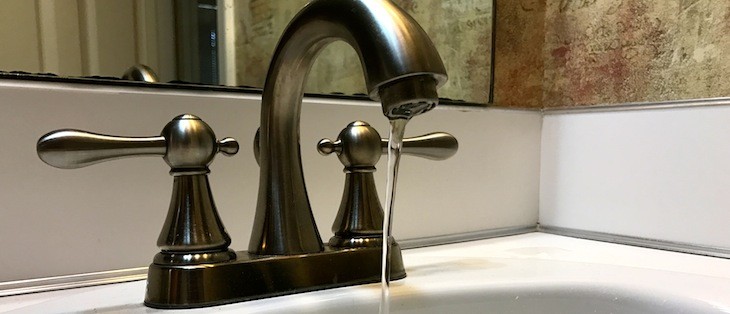Fort Smith consent decree may result in more rate hikes; one director ready for a legal ‘fight’
by June 22, 2021 10:02 pm 2,234 views

Even with a five-year extension for needed sewer improvement work in Fort Smith, completion of the work required by a federal consent decree could lead to significant sewer rate increase over the next several years.
After years of failing to maintain water and sewer infrastructure to federal standards, the city entered into a federal consent decree with the United States Environmental Protection Agency (EPA) and U.S. Department of Justice in late 2014. The consent decree required the city to make an estimated $480 million worth of sewer upgrades over the course of 12 years.
Over the past six years, the city has spent approximately $127 million in capital costs for required improvements. That does not include work done prior to the consent decree, work still needed, or the operation and maintenance program the city has implemented that will outlive the consent decree, said Fort Smith Director of Utilities Lance McAvoy.
The city spent about $200 million on storage tanks and equalization basins to reduce wet weather sanitary sewer overflows, which are the basis for the consent decree requirements. If the city has to do what is demanded of the consent decree within the timeframe set to be in full compliance, it will cost the city well over $600 million in capital cost because of additional areas rated a four or five that have to be fixed within four years of detection and inflation, McAvoy said.
If no other funding can be found, such as a sales and usage tax, bond issues, grants or federal funding, it would take an increase in sewer rates to fund the work, McAvoy said. That rate increase would need to be about 11% annually for the continuation of the decree.
Funding for consent decree work to date has come in part from water and sewer bill increases, which are up 167% since 2015. Funding for water and sewer work also comes from bonds supported by sales tax revenue and revenue from wholesale water buyers.
On May 7, 2020, the United States Environmental Protection Agency (EPA) and the Arkansas Department of Environmental Quality (ADEQ) agreed that the city has proved that the sewer improvement program will be “inordinately expensive, accordingly, qualified for an additional five years of implementation time.” The city received an additional five years added to the 12 in the order to implement changes. Because almost six years have passed, that means the city has 11 years to complete the improvements, said Paul Calamita, with Richmond, Va.-based AquaLaw, the firm hired by the city to help with legal relief.
Along with the five year extension, the EPA and ADEQ agreed to provide additional flexibility with certain interim program deadlines that will allow Fort Smith the ability to stretch out expensive system improvements over the whole of the remaining program implementation schedule, according to the update to the decree provided by the city in 2020.
An attempt by the city to remove the category four and five lines, which according to McAvoy may not need to be repaired for many years, was blocked by U.S. District Judge P.K. Holmes III, Calamita said. He believes that decision is appealable because of legal issues. He said the city needs to spend the money – which he estimated to be between $100-150 million dollars – on more pressing issues such as grease clogs and roots in sewer lines.
The city has filed a notice of appeal. Calamita said there is a chance for some relief if that appeal is successful. There is also the chance that agencies involved will grant some reprieve due to the COVID-19 pandemic and the historic flooding of the Arkansas River in May 2019 that caused significant damage to some of the city’s sewer system. However, Calamita said there is no question that unless other funding sources can be found, there would need to be rate increases to pay for the necessary work.
Fort Smith attorney Joey McCutchen questioned the city about an email that said the board had approved “massive water and sewer rate increase.” Director Lavon Morton said the board had never approved such an increase and that if any rate increase is approved, it will be done in an open meeting.
“When I read that in the email I took it as a negotiation tactic. Businesses do that all time,” Morton said.
Some city board members said they would not agree to any rate increase to pay for consent agenda work even after Calamita said not doing so could lead a judge to hold individual board members in contempt for not complying with the agreed upon consent decree.
“I say we fight this. We take it to the highest court that we need to,” said Director Kevin Settle.
